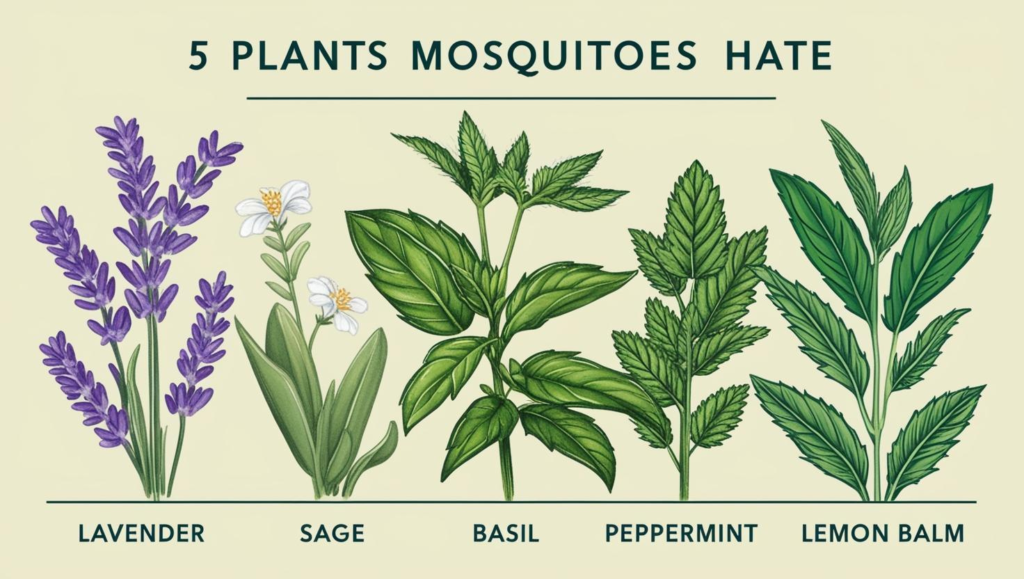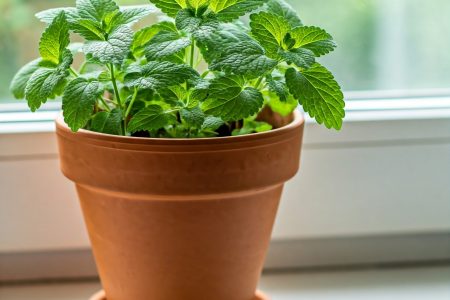
Mosquito repelling plants are a natural and eco-friendly way to keep mosquitoes at bay. These amazing plants not only protect your home from mosquitoes but also add beauty and functionality to your garden or indoor spaces. Mosquitoes can easily turn a peaceful evening into an annoying ordeal, but with the help of mosquito repelling plants, you can enjoy a healthier alternative to chemical repellents. Here are five incredible plants that provide natural protection while offering additional benefits for your health and home. For more tips and ideas on eco-friendly living, visit our popular articles and explore the best content to transform your home.
1. Lavender: The Aromatic Mosquito Repellent

Lavender is famous for its calming fragrance, but it’s also a potent mosquito deterrent.
Why Mosquitoes Hate It:
- Lavender contains linalool and linalyl acetate, compounds that repel mosquitoes and other insects.
- Its strong scent disrupts the mosquito’s ability to locate its prey.
Additional Benefits:
- Acts as a natural stress reliever and promotes restful sleep.
- Enhances the aesthetic appeal of any garden or room.
Gardening Tips:
- Grows best in full sunlight with well-drained soil.
- Ideal for outdoor gardens, window boxes, or small indoor pots.
2. Sage: An Herb with Mosquito-Fighting Power

Sage is a versatile herb that does more than flavor your food—it keeps pesky mosquitoes at bay.
Why Mosquitoes Hate It:
- Burning sage leaves produces a fragrant smoke that repels mosquitoes effectively.
- Its natural oils create a barrier that mosquitoes avoid.
Additional Benefits:
- Rich in antioxidants and beneficial for culinary use.
- Adds a rustic, earthy charm to your garden.
Gardening Tips:
- Thrives in well-drained soil and partial sunlight.
- Plant near outdoor seating areas for maximum effectiveness.
3. Basil: The Multi-Purpose Mosquito Repellent

Basil is a must-have herb for every garden, and it doubles as a natural mosquito repellent.
Why Mosquitoes Hate It:
- Basil leaves emit a strong aroma, especially when crushed, which masks the scent of humans.
- Contains estragole, a compound that mosquitoes dislike.
Additional Benefits:
- A culinary delight, perfect for making pestos, soups, and salads.
- Improves air quality and adds greenery to your home.
Gardening Tips:
- Place in bright sunlight and water consistently.
- Keep pots near windows or doorways to block mosquito entry.
4. Peppermint: Fresh and Mosquito-Free

Peppermint is not only refreshing but also one of the most effective mosquito-repelling plants.
Why Mosquitoes Hate It:
- Peppermint contains menthol, which repels mosquitoes and irritates their senses.
- The strong aroma makes it harder for mosquitoes to detect their targets.
Additional Benefits:
- Soothes skin irritations and can be used as a natural remedy for mosquito bites.
- Can be brewed into herbal tea or used in homemade skincare products.
Gardening Tips:
- Grows well in pots with moist, well-drained soil.
- Ideal for indoor and outdoor spaces, but it spreads quickly, so keep it contained.
5. Lemon Balm: The Citrus-Scented Mosquito Blocker

Lemon balm is a member of the mint family and is beloved for its mosquito-repelling properties.
Why Mosquitoes Hate It:
- Contains citronellal, the same compound found in citronella, which is a natural mosquito repellent.
- Its citrusy scent masks human odors that attract mosquitoes.
Additional Benefits:
- Reduces stress and enhances mental clarity when brewed into tea.
- Easy to grow and maintain, even for beginners.
Gardening Tips:
- Prefers partial shade and moist soil.
- Perfect for small pots, balconies, or garden borders.
Why Choose Plants Over Chemical Repellents?
Opting for plants instead of chemical sprays is not only eco-friendly but also beneficial to your health and surroundings.- Chemical-Free: These plants are a natural alternative to potentially harmful insecticides.
- Cost-Effective: Once planted, they require minimal maintenance and provide continuous benefits.
- Multi-Purpose: Beyond repelling mosquitoes, these plants offer culinary, aesthetic, and health advantages.
Pro Tips for Maximizing Mosquito Protection
- Strategic Placement: Position these plants near windows, doorways, and outdoor seating areas to block mosquitoes effectively.
- Crush the Leaves: Crushing leaves releases the oils and enhances the repelling effect.
- Combine Plants: Group several mosquito-repelling plants together for a stronger barrier.
- Create Homemade Sprays: Use the leaves to make DIY mosquito-repelling sprays for personal and home use.
Conclusion
With Lavender, Sage, Basil, Peppermint, and Lemon Balm, you can create a mosquito-free sanctuary right in your home. These plants not only keep mosquitoes at bay but also enhance your garden’s beauty and offer a plethora of health and wellness benefits. Say goodbye to mosquitoes the natural way and let these amazing plants transform your living space into a haven of peace and protection.
Start planting today and enjoy a mosquito-free, fragrant, and beautiful home!
Explore more inspiring content on my YouTube channel—don’t forget to like, share, and subscribe for the latest updates!






